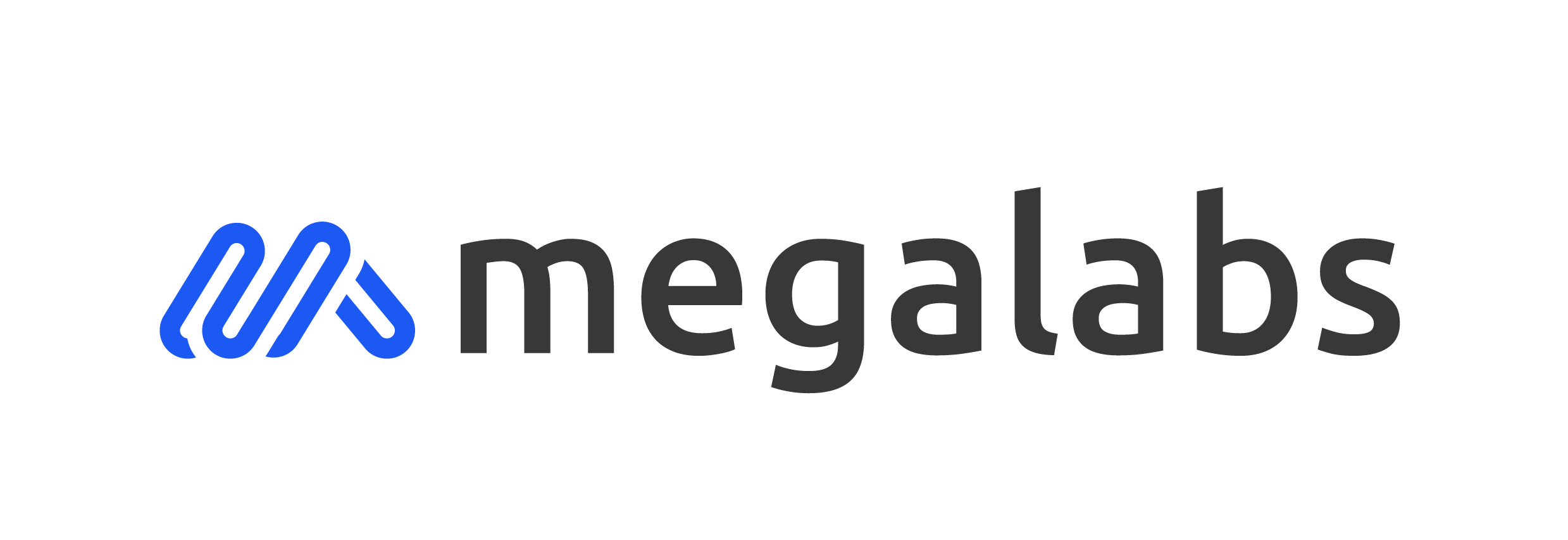AI is the development of computer algorithms capable of doing tasks that would normally need human intellect, such as learning, problem solving, pattern recognition, and decision making. In recent years, artificial intelligence has revolutionized several industries, including marketing.
In marketing, companies generally utilize AI to improve content marketing, audience engagement, customer outreach and customized user experience. Marketers also leverage AI tools to analyze vast amounts of data they receive online and offline. By analyzing data companies make more accurate decisions and gain insights to enhance their future campaigns.
This blog post will explore the various ways AI is shaping the marketing landscape, discuss its benefits and challenges, and provide insights into how businesses can effectively integrate AI into their marketing strategies to stay ahead in the competitive market.
The Benefits of AI in Marketing
AI offers various advantages that help companies improve their marketing strategies, drive better results and enhance customer satisfaction. In this section, we will discuss how AI is transforming the marketing industry in terms of efficiency, personalization, and customer satisfaction.
The Efficiency of Using AI in Marketing
In today’s fast-paced and data-driven marketing landscape, efficiency is very crucial for businesses. Nobody wants to lose time and money and since the competition is high, more and more companies are starting to use AI-powered tools and techniques to achieve their goals.
Here, we will explore the various ways AI tools contribute to increased efficiency in marketing by streamlining processes, automating repetitive tasks, and making data-driven decisions more quickly and accurately.
1. Automation of Repetitive Tasks
One of the most important advantages of using AI in marketing is its ability to facilitate time-consuming and repetitive tasks. AI tools can do keyword research, create improved ad campaigns and automate customized email marketing. Marketers also benefit from AI in content creation. AI copywriting tools have already made it simple and easy to create tons of content for social media, ads, email outreach, blogging, FAQs, etc.
2. Improved Data Analysis and Decision-Making
Analyzing vast amounts of data is tedious and time-consuming, sometimes impossible for marketers. AI algorithms are capable of processing data and bringing out valuable insights so that marketers can make data-driven decisions more quickly and accurately. AI minimizes errors, thus improving marketing performance and reducing unnecessary costs.
3. Campaign Optimization
AI-powered tools help marketers optimize their campaigns effectively by finding patterns and trends in real-time. For instance, AI examines the performance of different marketing channels, ad designs, and audience groups, giving insights into successful strategies and those needing improvement. This information lets marketers adjust quickly, making sure their campaigns always achieve the best results.
4. Enhanced Collaboration and Resource Allocation
AI tools help marketing teams collaborate more efficiently by streamlining communication, task management, and resource allocation. Marketing teams can use AI-powered project management tools to ensure that tasks are assigned to the right team members, deadlines are met, and resources are used effectively. This can lead to increased productivity and better marketing outcomes.
5. Scalability
As businesses grow, they must also scale their marketing efforts to meet increasing demands. AI-powered tools can help marketers scale their efforts more efficiently by automating tasks, analyzing data, and optimizing campaigns. Businesses can expand their marketing reach without sacrificing efficiency or performance with these scalable tools.

Personalization and Targeting
One of the most significant advantages of AI-powered tools and techniques is their ability to personalize marketing messages and target specific audiences based on their interests, behaviors, and preferences. By leveraging these tools, marketers can create highly relevant and engaging content that resonates with their target audience, ultimately leading to higher conversion rates and customer satisfaction.
1. Personalized Content and Recommendations
Algorithms can analyze vast amounts of data, including user browsing history, past purchases, and social media interactions to identify patterns and preferences. This information enables marketers to create tailored content and recommendations for each user. For example, e-commerce websites can use recommendation engines powered by algorithms to suggest products that a user is more likely to purchase, based on their browsing history and preferences.
2. Dynamic Email Marketing
Email marketing campaigns can be improved with the use of AI, including by personalizing subject lines, content, and send times to maximize engagement. By analyzing user data, AI can determine the optimal time to send an email, ensuring it reaches the recipient when they are most likely to engage with it. Furthermore, AI can help create personalized email content, such as product recommendations or special offers, based on the recipient’s preferences and past interactions with the brand.
3. Improved Ad Targeting
AI-powered advertising platforms, such as Google Ads and Facebook Ads, help marketers target their ads more effectively by using machine learning algorithms to analyze user data and predict user behavior. This enables businesses to display ads to users who are more interested in their products or services. Additionally, AI can optimize ad creative, such as images and eye-catching copy. All these enhancements will maximize engagement and eventually result in higher click-through rates and conversions.
4. Chatbots and Virtual Assistants
A chatbot powered by artificial intelligence can provide personalized customer support and guidance to enhance the user experience and build brand loyalty. Chatbots can understand customer queries using natural language processing, providing relevant information or assistance. This personalized approach to customer service can help businesses address concerns more effectively, leading to higher satisfaction rates. The other great advantage of chatbots is that they free up some of the personnel in customer service departments, thereby reducing costs.

Improved Customer Satisfaction
Providing outstanding customer experiences is critical for creating brand loyalty and boosting customer retention. Chatbots powered by AI have emerged as significant assets for marketers looking to improve customer satisfaction and provide personalized help. In this section, we look at how artificial intelligence (AI) tools can boost consumer satisfaction when employed in marketing initiatives.
1. Personalized Customer Support
One of the key benefits of using artificial intelligence-powered chatbots and virtual assistants is their ability to provide personalized customer support. By analyzing user data and leveraging natural language processing, these tools can understand customer queries and offer relevant information or assistance.
This personalization can also be used to target customers with specific messages and offers. By leveraging the data from their interactions with customers, businesses can build a detailed profile of each user’s interests and preferences. This allows them to customize offers based on these insights.
2. Faster Response Times
Customer service has changed. Today’s fast-paced digital world means customers expect prompt and efficient support. AI-powered tools can help businesses meet these expectations by providing instant responses to customer queries. These tools ensure that customers receive timely assistance and reduce the likelihood of frustration due to long wait times.
3. 24/7 Availability
AI-powered tools can provide customer support around the clock, which is especially beneficial for businesses with customers in different time zones or who need support outside of traditional business hours. By offering constant support, businesses can improve customer satisfaction and demonstrate their commitment to meeting customer needs.
4. Proactive Customer Engagement
AI tools can help marketers proactively engage with customers by providing relevant information, recommendations, or support to customers based on user behavior and preferences. For example, AI-powered marketing platforms can send personalized emails or notifications to customers, offering them helpful tips or product recommendations based on their interests. The proactive engagement can help anticipate customer needs and address potential concerns before they escalate, ultimately leading to higher satisfaction rates and improved customer retention.
5. Continuous Improvement through Feedback Analysis
AI-powered customer support tools can analyze feedback and interactions to identify areas for improvement. These tools can help businesses continuously enhance their customer support processes by leveraging machine learning algorithms, which learn from customer interactions and adapt responses over time to provide the most relevant and helpful support.

The Future of AI in Marketing
Businesses must stay ahead of the curve as artificial intelligence (AI) keeps changing the marketing industry by embracing ongoing innovation while adapting to the changing conditions of their sector. In this section, we will look at the future implications of AI in marketing, analyze the issues of automation and job loss, and provide solutions for businesses to reduce the effects of these developments.
Ongoing Innovation and Adaptation
In the coming years, AI is expected to become even more sophisticated and powerful. AI-powered tools and techniques will provide new opportunities for marketers to enhance their strategies and improve customer experiences. Businesses must be open to embracing new AI-powered tools and techniques and be prepared to adapt their marketing strategies accordingly. This may involve investing in ongoing training and education for marketing teams, staying informed about the latest AI advancements, and being proactive in adopting new technologies.
Automation and Job Loss
As artificial intelligence continues to automate marketing tasks, there is rising concern in the industry about the possible impact on job losses. While certain jobs may become obsolete as a result of automation, it is critical to remember that AI will also offer new career opportunities and redefine existing professions.
It’s also true that to get valuable results from AI tools, it’s important to provide relevant and well-thought-out input. This necessity has led to new job definitions such as “prompt engineering“. So, we can say that marketers who can adapt themselves will most probably stay secure.
Mitigating the Impact of Automation
To tackle the challenges related to automation and job loss, you can take several proactive steps to ensure a smooth transition and maintain a competitive edge in the market. Here are some steps to take:
Reskilling and Upskilling: Consider investing in training your employees on AI and AI-related tools and techniques. This improves your marketing team’s efficiency and facilitates adaptation to the ever-changing world of marketing. Such training will allow them to stay on top of changing demands and continue to provide valuable value to your organization.
Emphasizing Human-Centric Skills: While AI can automate many activities, it cannot replace the human touch in areas such as empathy, creativity, and relationship-building. Continue to prioritize these human-centric abilities within your marketing teams to ensure they can effectively work with AI-driven campaigns.
Collaboration between AI and Human Marketers: Encourage a collaborative approach where AI tools and human marketers work together to develop and execute marketing strategies. This can help your business leverage the best of both worlds – the efficiency and accuracy of AI and the creativity and empathy of human marketers.
Ethical Considerations: As AI becomes more prevalent in marketing, you must also consider the ethical implications of using these technologies. This includes ensuring that customer data is used responsibly, maintaining transparency in AI-driven decision-making, and addressing potential biases in AI algorithms.
Final thoughts
The incorporation of artificial intelligence (AI) in marketing has transformed the way firms approach their plans, providing increased efficiency, improved consumer happiness, and a competitive advantage in the market. To stay ahead of the curve as AI evolves, organizations must embrace innovation and adapt to the changing landscape. Marketers may greatly improve their marketing operations by leveraging AI for automation, data analysis, campaign optimization, and consumer engagement.
However, addressing the difficulties connected with automation and potential job loss in the business is critical. Companies may address these issues by investing in reskilling and upskilling programs, stressing human-centric skills, encouraging collaboration between AI and human marketers, and taking ethical implications into account in AI-driven marketing campaigns.

